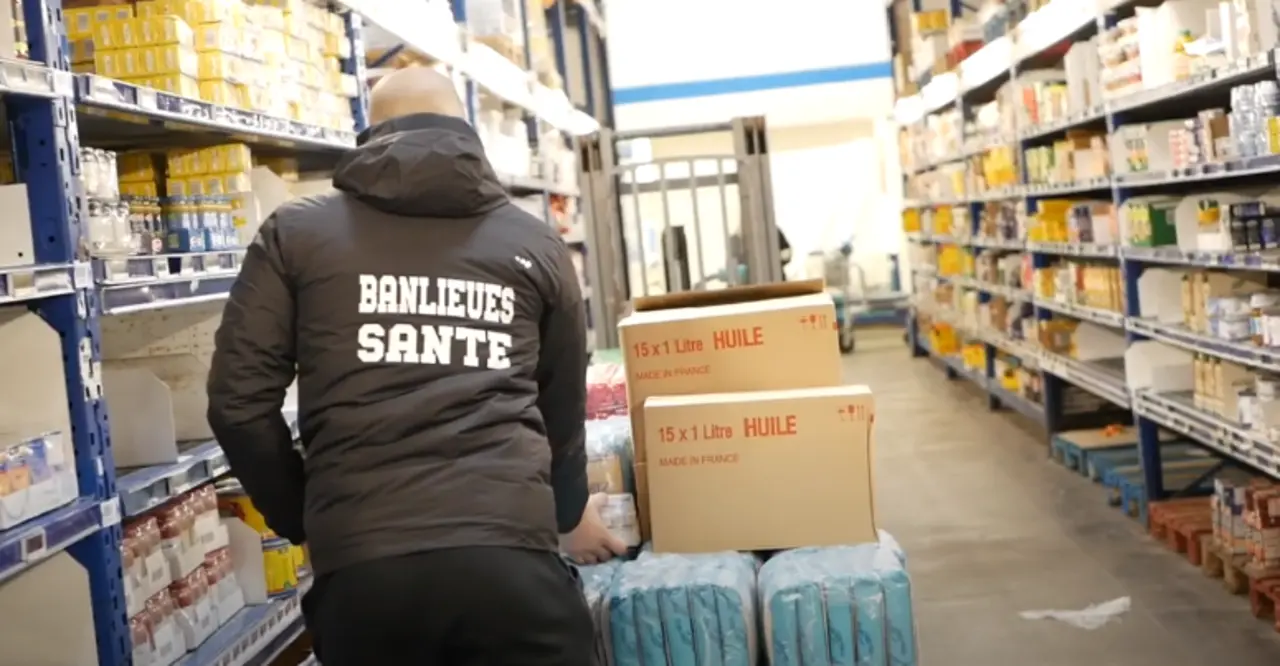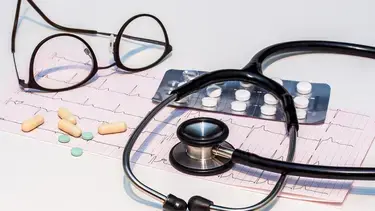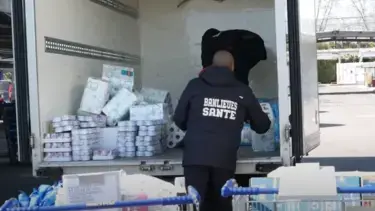
In spite of the pandemic, our INSEAD 21J MBA students didn’t hold back during Master Strategist Day’s efforts to support lower-income communities of Paris with Banlieues Santé. Reflecting on the experience, 21J’s Lize Hartley shares her thoughts.
2020 has been a year unlike any other. For 232 students of the class of 21J, it was the year of starting their MBAs at INSEAD in the midst of a pandemic. And yet, despite the myriad challenges we faced, it must be acknowledged that we are still far more privileged than many – which was something we realized deeply with 2020’s Master Strategist Day (MSD) with the Banlieues Santé.
Officially founded in 2018, Banlieues Santé is a non-profit organisation linking residents of the Paris banlieues (French for ‘suburbs’) to the French healthcare system. Operating like a hub for socio-health innovation, the non-profit acts like a facilitator between the state medical system and the people who need its services. While the system has the capacity to provide healthcare to all, many people fall through the cracks for reasons such as language barriers, prior prejudiced experiences in seeking such services, and a general mistrust of the system.
Through its bi-annual Master Strategist Day, INSEAD aims to advance the principle and practice of business as a force for good. As part of their core strategy class, students experience a unique full day event to put their learning into practice, by analyzing challenges and proposing strategic solutions for real-life non-profit organisations.
As the global COVID-19 pandemic hit, Banlieues Santé was faced with a tidal wave of new needs of providing healthcare and basic necessities as well as sharing relevant information within communities. Though one of the most devastating events of our time, Banlieues Santé was successfully able to assist countless people in lockdown in areas otherwise difficult to reach for other relief organisations – thanks to its established community network, mobilization of strategic assets and on-ground knowledge.
With a goal to help more people in need through scaling its operations, Banlieues Santé presented us with an opportunity to support its efforts. Our task as students was to devise three potential strategies per group, while considering any possible trade-offs and impact on all aspects of the organisation. Eventually, each team was to select one strategy to recommend, which would drive Banlieues Santé’s goal, without compromising its mission and values.

Sharing his observations on the students’ discussion, INSEAD Professor Loïc Sadoulet explained, “Banlieues Santé has a unique model which was not very easy to decipher, for us or for the participants. It was interesting to see the participants debate whether Banlieues Santé should focus purely on bringing large-scale programs to local communities, or on helping these local social entrepreneurs amplify their impact, and more importantly on how to help Banlieues Santé design a model that can be replicated, scaled and sustained.”
Despite the MSD being hosted entirely online, it was an enriching and interactive day. Kicking off with an opening from INSEAD Professor Ithai Stern who introduced the organisation, many students continued their brainstorming well into the wee hours before the big day. Kicking off early the next morning with a Q&A session with the founders of Banlieues Santé, students were also linked to their Bain & Company mentors, who frequently checked in with their groups, giving valuable advice and feedback.
Almost 23 hours later, the three finalists were announced and presented their recommendations to a panel of judges including Ferdinando Grimaldi (MBA ’89D), INSEAD Dean Urs Peyer, and INSEAD Professors Loïc Sadoulet and Ilze Kivleniece. Also present were the Banlieues Santé founders, a Bain & Company representative, Hoffmann Institute’s Executive Director Katell Le Goulven, and family members and other classmates of Hugo van Berckel (MBA ‘89D), the INSEAD alumnus for whom the MSD award is named.

The winning team’s recommendation was to move from an incubator to an accelerator approach, which would empower local champions to lead the initiatives. The team believed that by providing advice, support and funding during this process, this “test & learn” methodology would allow Banlieues Santé to focus on a larger number of projects, rely on local knowledge from the community, and increase capacity as a result of short delivery time.
Reflecting on the experience, Banlieues Santé’s founder Abdelaali El Badaoui said, “The MSD was very good for us, both from an outcome and process point of view. The solutions the MBAs proposed gave us a true international perspective, and allowed us to reflect on different potential sustainable business models that match the needs of our targeted population. It was a very useful exercise that provided us with a fresh perspective.”
Motivated by the passion for MSD, our class continued using our strengths and knowledge to support Banlieues Santé’s work outside of class. Hearing of the organisation’s urgent need to supply young ones in the community with diapers, the 21Js rallied together and raised funds to support the cause through a crowd-funding page.
“Allowing the students to work on a real life case, where it was clear they are having a real impact on real people was invaluable,” said Professor Stern. “It made everyone more engaged and motivated and injected real purpose into the whole exercise.”
Even though we were not physically together as we tackled MSD in lockdown, the feeling of camaraderie as we put our skills and learnings to the test was as strong as ever, and despite a global pandemic, it was clear that no barrier should discourage us in the pursuit of business as a force for good.
Subscribe to our Hoffmann Institute Quarterly Newsletter
Stay informed on our 60 second quarterly video updates, stories, video recordings of our webinars, and details of upcoming events and much more.
